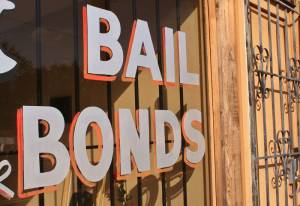Arraignment & Bail
After a defendant is criminally charged, he/she is brought before the court for a hearing, known as an arraignment. An arraignment marks the beginning of formal court proceedings, during which time several rights attach, including the defendant’s right to reasonable bail.
Arraignment
During the arraignment, the accused is formally advised of the charges against him/her and explained his/her statutory and constitutional rights. The formal charge may appear in three forms: infraction, misdemeanor or felony. Unlike other phases of formal court proceedings, no evidence is presented and no witnesses testify at the arraignment. Rather, new dates are set for future hearings. For felony charges, a defendant may undergo two arraignments: an initial arraignment in the inferior court and a subsequent arraignment in the superior court.
Entry of Plea

The accused is required to enter a plea during the arraignment. He/she may enter a plea of (i) guilty, (ii) not guilty, or (iii) no contest, or he/she may request a continuance to retain a lawyer. The experienced team of California Criminal Defense Attorneys at Wallin & Klarich generally advises clients to plead not guilty, even if there remains doubt as to the defendant’s innocence. Pleading not guilty will grant the attorney an opportunity to review the evidence in the case and discuss the case with the prosecutor on a subsequent date. However, entering a not guilty plea is unwise for a defendant not represented by counsel. If an unrepresented defendant enters a not guilty plea, an attorney retained by the defendant at a later date cannot then file a demurrer in the case. Hiring a California Criminal Defense Attorney will help the defendant to better understand how his/her plea can substantially affect the direction of the case.
Bail Setting
After the defendant enters a plea, the court addresses bail. To appropriately set bail, the court will presume the defendant guilty. Please see Bail for further details.
Bail Hearing
If, after the arraignment, the defendant is in custody and faces criminal charges, he/she has the right to reasonable bail. An experienced California Criminal Defense Lawyer will generally ask the court to reduce bail at a bail hearing or bail review. Although some courts allow the bail hearing to take place during the arraignment, other courts require the attorney to file a formal motion and notify the prosecutor of the defendant’s intent to seek a bail reduction. Consulting with an Orange County Criminal Defense Lawyer at Wallin & Klarich can help the defendant to save hundreds or thousands of dollars in bail fees.
Call Wallin & Klarich Today
The California Criminal Defense Attorneys at Wallin & Klarich have over 40 years of experience handling criminal cases. We can help you through the arraignment process and can work to reduce bail, alleviating some of the stress and strain associated with the criminal process. Please call our offices at (877) 4-NO-JAIL or (877) 466-5245 or submit the form at the top of this page for more information and immediate assistance.


